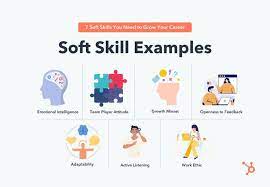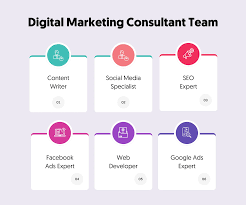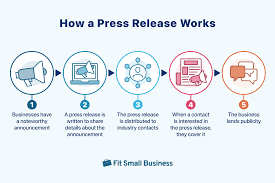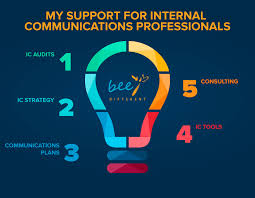Navigating the Intricacies of Personal and Professional Affairs
The Complexity of Affairs: Understanding the Impact and Consequences
Affairs, whether emotional or physical, can have a profound impact on individuals and relationships. The complexities involved in affairs go beyond mere infidelity, delving into the realms of emotions, trust, and consequences.
When one engages in an affair, it is not just a breach of trust with their partner but also a reflection of underlying issues within the relationship. Feelings of betrayal, hurt, and confusion often follow, leading to a breakdown in communication and emotional turmoil.
Moreover, affairs can have long-lasting consequences that extend beyond the immediate parties involved. Families, children, and social circles can be deeply affected by the aftermath of an affair, leading to fractured relationships and emotional distress.
Understanding the reasons behind affairs is crucial in addressing the root causes and preventing future occurrences. Issues such as lack of emotional connection, unresolved conflicts, or individual insecurities can contribute to the vulnerability of engaging in an affair.
Communication plays a vital role in navigating the complexities of affairs. Open and honest dialogue between partners can help address underlying issues before they escalate into infidelity. Seeking professional help through therapy or counselling can also provide valuable insights and support in rebuilding trust and repairing relationships.
In conclusion, affairs are not simply acts of betrayal but manifestations of deeper emotional struggles within individuals and relationships. By acknowledging the complexity of affairs and addressing them with empathy and understanding, individuals can work towards healing and rebuilding stronger connections with their partners.
Nine Essential Tips for Safeguarding Your Relationship Against Affairs
- Communicate openly and honestly with your partner about your feelings and concerns.
- Set clear boundaries to avoid crossing the line into emotional or physical infidelity.
- Prioritize trust and respect in your relationship to maintain a strong foundation.
- Seek professional help or counselling if you are struggling with temptations outside of your relationship.
- Take responsibility for your actions and understand the consequences of engaging in an affair.
- Consider the impact on all parties involved, including children or other family members.
- Reflect on what led to thoughts of having an affair and address any underlying issues within yourself or your relationship.
- Practice self-care and focus on improving communication and intimacy with your partner.
- Remember that honesty is key in any healthy relationship, even when discussing difficult topics like affairs.
Communicate openly and honestly with your partner about your feelings and concerns.
Open and honest communication with your partner about your feelings and concerns is essential when navigating the delicate topic of affairs. By sharing your emotions and addressing any underlying issues openly, you create a foundation of trust and understanding within your relationship. This communication allows both partners to express their needs, fears, and hopes, fostering a deeper connection and potentially preventing misunderstandings that could lead to infidelity. Embracing transparency in conversations about affairs can strengthen the bond between partners and help them work together towards a healthier and more fulfilling relationship.
Set clear boundaries to avoid crossing the line into emotional or physical infidelity.
Setting clear boundaries is essential in maintaining the integrity of a relationship and preventing the risk of emotional or physical infidelity. By establishing mutual understandings and agreements on what is considered acceptable behaviour, partners can navigate potential temptations and conflicts with clarity and respect. Clear boundaries serve as a guide to uphold trust, honour commitments, and foster open communication, thereby creating a strong foundation for a healthy and fulfilling relationship.
Prioritize trust and respect in your relationship to maintain a strong foundation.
Prioritising trust and respect in your relationship is essential for maintaining a strong foundation. Trust forms the cornerstone of a healthy partnership, fostering openness, honesty, and security between partners. Respect, on the other hand, cultivates admiration, consideration, and valuing each other’s feelings and boundaries. By prioritising these fundamental values, couples can build a solid and enduring bond that withstands challenges and nurtures a deep connection based on mutual understanding and support.
Seek professional help or counselling if you are struggling with temptations outside of your relationship.
Seeking professional help or counselling can be a crucial step if you find yourself grappling with temptations outside of your relationship. A trained therapist or counsellor can provide a safe and non-judgmental space for you to explore the underlying reasons behind these temptations and work towards finding healthier ways to address them. With their guidance, you can gain valuable insights, develop coping strategies, and strengthen your emotional resilience to navigate the complexities of temptation and maintain the integrity of your relationship.
Take responsibility for your actions and understand the consequences of engaging in an affair.
It is essential to take responsibility for your actions and fully comprehend the consequences of engaging in an affair. Acknowledging the impact of your choices on yourself, your partner, and others involved is crucial in navigating the complexities of infidelity. By accepting accountability for your behaviour and understanding the potential repercussions, you can begin to address the underlying issues that led to the affair and work towards rebuilding trust and repairing relationships with honesty and empathy.
Consider the impact on all parties involved, including children or other family members.
When dealing with affairs, it is crucial to consider the far-reaching impact on all parties involved, including children and other family members. The repercussions of infidelity can extend beyond the immediate individuals, affecting the emotional well-being and stability of the entire family unit. Children may experience confusion, sadness, and feelings of betrayal when they become aware of a parent’s affair, leading to long-term emotional consequences. By taking into account the impact on all parties involved, individuals can make more informed decisions and work towards minimising harm while navigating the complexities of addressing infidelity within a family dynamic.
Reflect on what led to thoughts of having an affair and address any underlying issues within yourself or your relationship.
It is essential to reflect on the factors that have prompted thoughts of having an affair and to delve deeper into the underlying issues within oneself or the relationship. By taking the time to understand the root causes of these feelings, individuals can gain insight into their emotional needs, desires, and vulnerabilities. Addressing these underlying issues with honesty and openness can pave the way for personal growth, improved communication, and potentially prevent detrimental actions such as infidelity.
Practice self-care and focus on improving communication and intimacy with your partner.
To navigate the challenges of affairs, it is essential to prioritise self-care and dedicate efforts towards enhancing communication and intimacy with your partner. By taking care of your own well-being, you can cultivate emotional resilience and clarity, enabling you to engage in constructive dialogue with your partner. Focusing on improving communication and intimacy fosters a deeper connection and understanding between partners, laying a strong foundation for trust and mutual support in overcoming the complexities of affairs.
Remember that honesty is key in any healthy relationship, even when discussing difficult topics like affairs.
In any healthy relationship, honesty is paramount, especially when broaching sensitive subjects such as affairs. Being truthful and transparent with your partner is crucial in fostering trust and open communication. Addressing difficult topics like affairs with honesty can be challenging, but it is essential for both parties to have a clear understanding of the situation and work towards resolving issues together. By prioritising honesty in discussions about affairs, couples can navigate the complexities of infidelity with integrity and respect for each other’s feelings.












